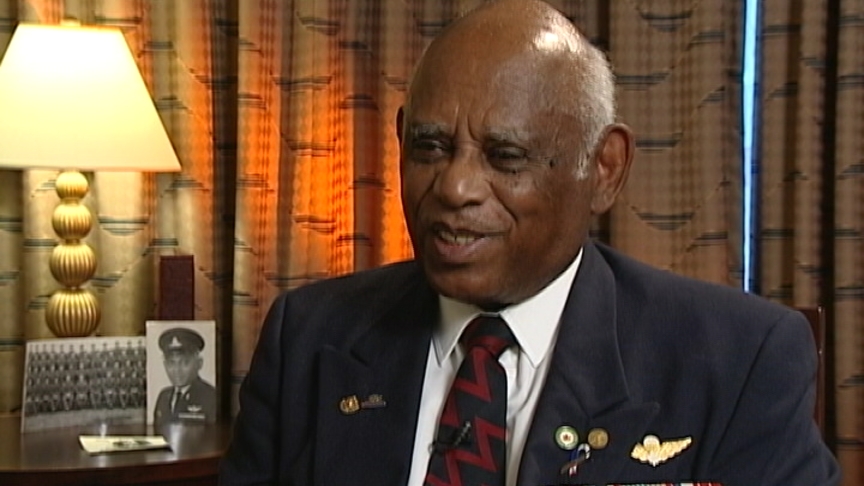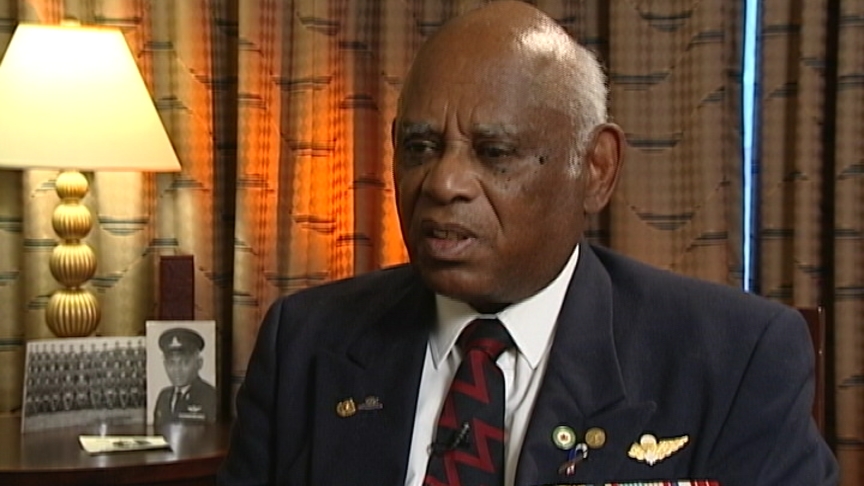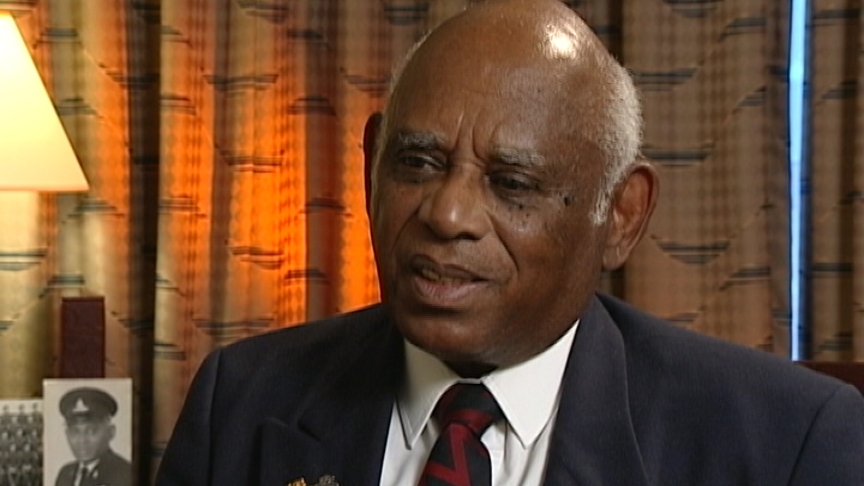Conditions for the Soldiers
Heroes Remember
Conditions for the Soldiers
Transcript
Description
Mr. Patrick describes his food and ammunition supply upon arrival in Pusan.
Errol Patrick
Mr. Errol Patrick was born in Montreal in 1930. After his parents separated, Mr. Patrick was sent to Trinidad to live with his grandfather. His grandfather held the position of school master until his death in 1942. In 1945, Mr. Patrick returned to Canada to live with his father. He then made the decision to enlist for the Korean War, joining with the Royal Canadian Horse Artillery Regiment as an artillery soldier. After his service in Korea, Mr. Patrick continued his military career, travelling to Germany in 1957 and that same year he married. He carried on as an instructor for eight years with the Battery Command post of the No. 1 RCHA. In 1966, Mr. Patrick returned to Germany and was promoted to staff sergeant taking on the duty of commanding the troops. After returning to Canada he was promoted to Chief Warrant Officer at Petawawa, Ontario and at the end of his career held rank of Chief Warrant Officer of Artillery while stationed in Gagetown, New Brunswick. In 1985 Mr. Patrick retired from the military with 35 year service. He and his wife raised three children all of whom became very successful.
Meta Data
- Medium:
- Video
- Owner:
- Veterans Affairs Canada
- Duration:
- 1:54
- Person Interviewed:
- Errol Patrick
- War, Conflict or Mission:
- Korean War
- Location/Theatre:
- Korea
- Branch:
- Army
- Units/Ship:
- Royal Canadian Horse Artillery
Related Videos
- Date modified:





